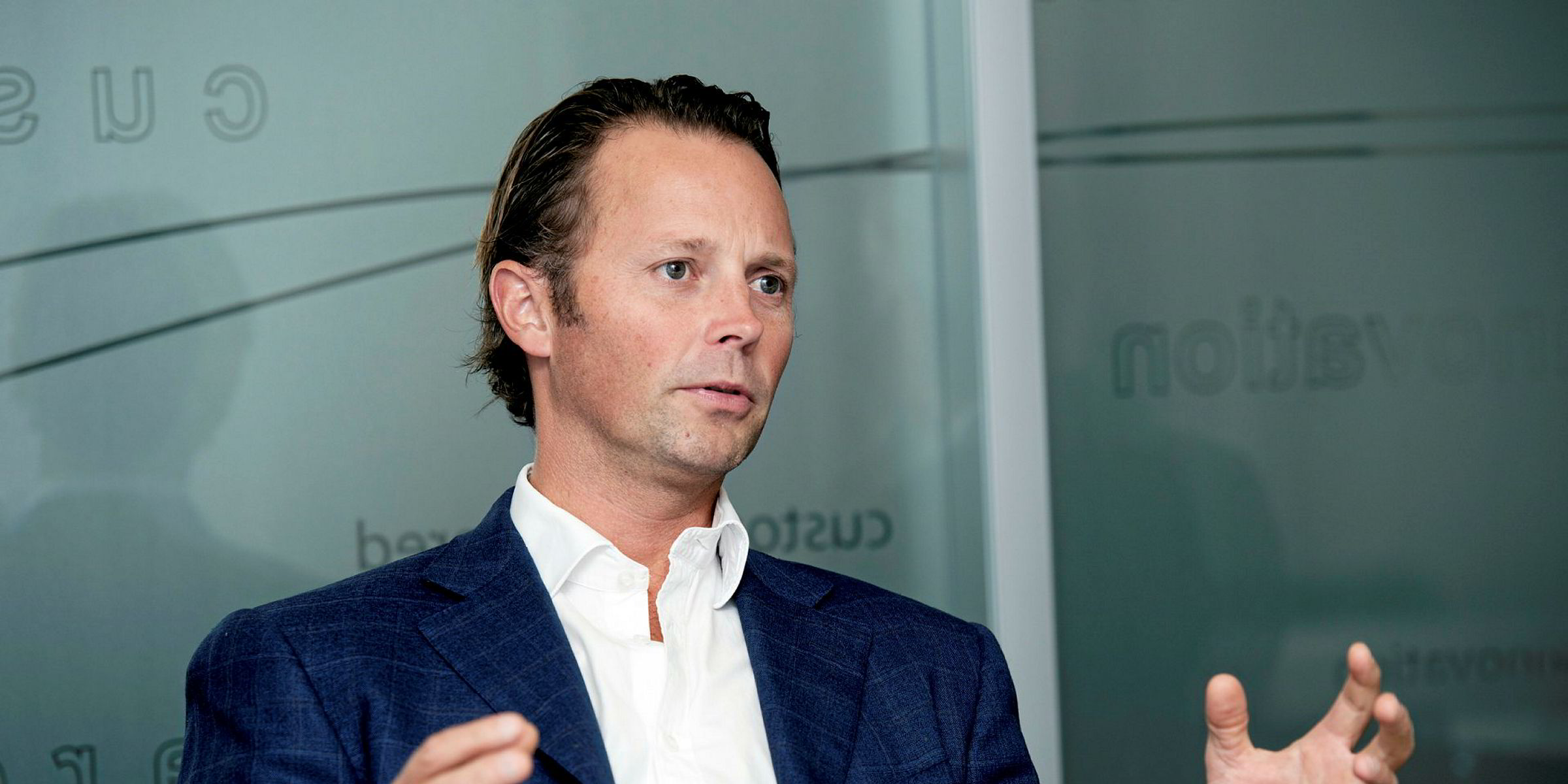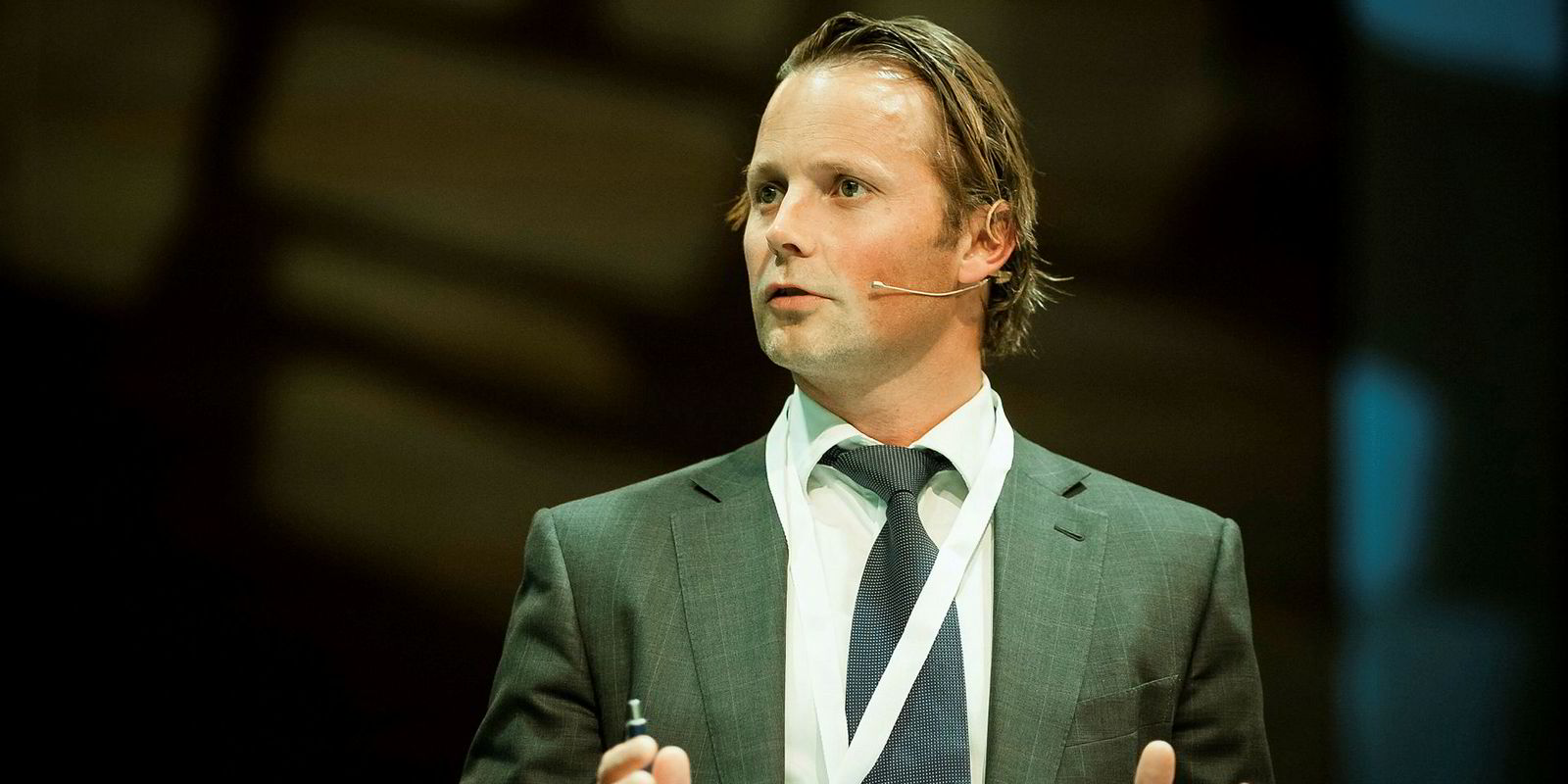Norway’s Wilh Wilhelmsen is confident that a nimble and innovative approach to serving its diverse customer base will enable it to generate sustainable returns on its business, despite the storm clouds hanging over global trade.
Group chief executive Thomas Wilhelmsen says that despite the threats faced by the market, there are even greater opportunities with the use of new technologies and digital platforms.
Supply adjustment
He says that some of the group’s customers in the automotive market are already adjusting their supply chains in the wake of US President Donald Trump’s punitive trade tariffs against China.
However, he is optimistic over the longer-term outlook. "You have the ghost of trade wars going on. I do not think we will not get too much trade war," he says.
The world has experienced for decades the positive side of global trade
“The world has experienced for decades the positive side of global trade. So at the end of the day, while there might be some impact, we don’t end up in a complete clash because it doesn’t gain anyone anything in the long run.”
Wilhelmsen made his comments to TradeWinds in Tokyo last week ahead of a seminar for shipmanagement and ship-services clients held at the Norwegian embassy.
Wilh Wilhelmsen is among the world’s largest diversified ship services groups with ships agency, marine products and shipmanagement arms, as well as a 38% stake in car and truck shipping company Wallenius Wilhelmsen.
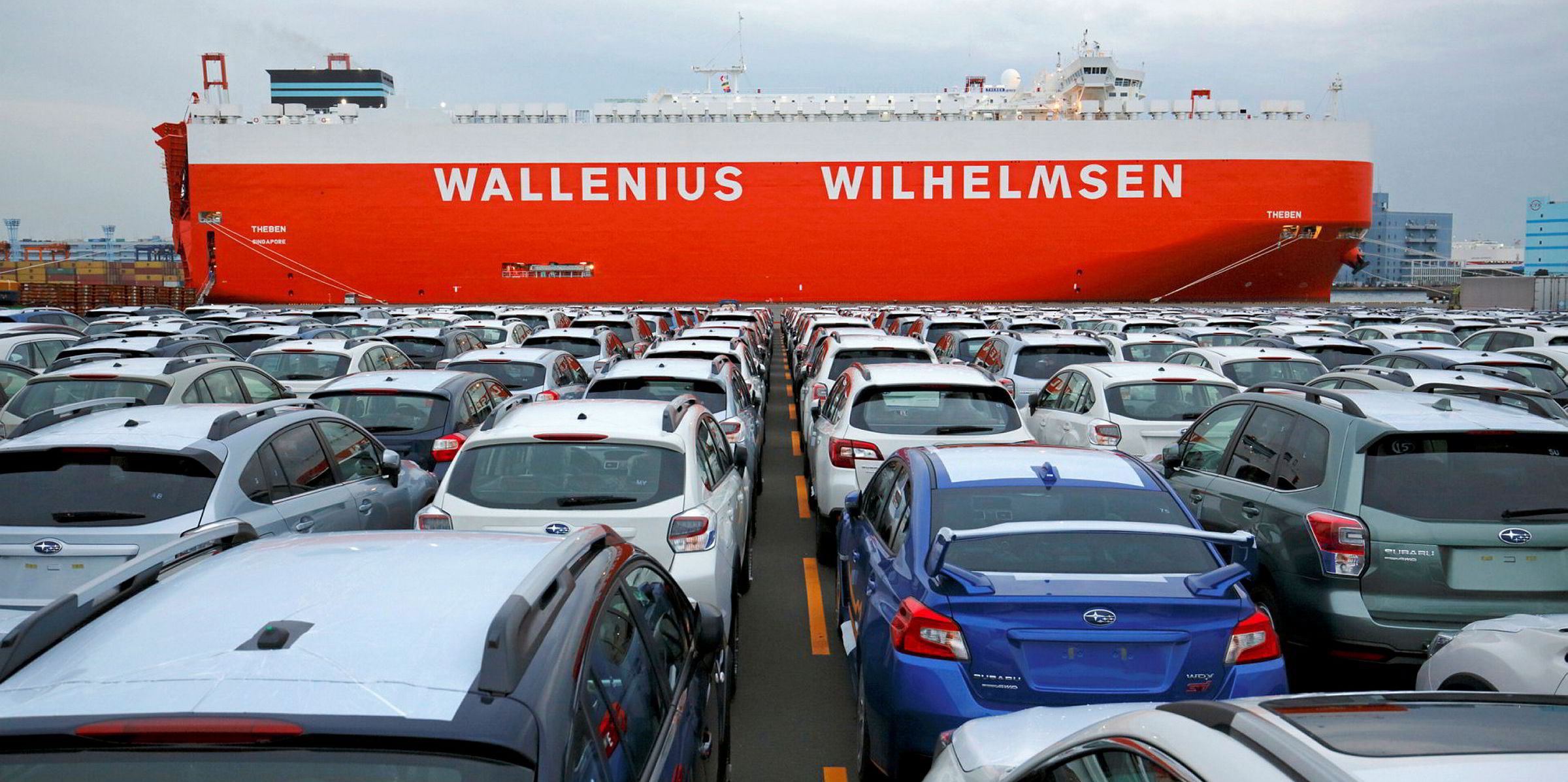
Stake in car and truck transport
The company's size gives it exposure to a broad cross section of the business and provides insight into many markets.
“Our existing offers and business models are challenged by multiple factors, including rapid technology development, changing customer and supplier behaviour, new competitors and a changing workforce,” Wilhelmsen says.
We will continue to build on this platform, through organic growth, improving profitability, develop new business models, as well as develop and introduce new digital solutions and services
“The new environment also creates a vast number of opportunities, which we will capture by being agile, innovative and by disrupting ourselves.”
He adds: “The Wilhelmsen group has through a diversified portfolio of companies a fantastic platform — all well positioned in the markets theyoperate.
“We will continue to build on this platform, through organic growth, improving profitability, develop new business models, as well as develop and introduce new digital solutions and services.”
Uncertainties over the outlook for the auto industry continue to hang over the sector, although the market for "high and heavy" cargoes is expected to see continued positive growth. Rising bunker prices and low rates have hampered performance.
“Wallenius Wilhelmsen has a solid platform for growth and is well positioned in a challenging market,” he says.
Since the creation of Wallenius Wilhelmsen as a stand-alone platform in 2017, it has made synergy savings of $120m and now hopes to generate a further $100m through a performance improvement programme.
Despite the market pressures, Wilhelmsen says he does not expect to see significant merger activity in the car-carrier sector.
“On a general note, with relatively few players I would be surprised to see any larger M&As [mergers and acquisitions] related to car and ro-ro operators," he adds.
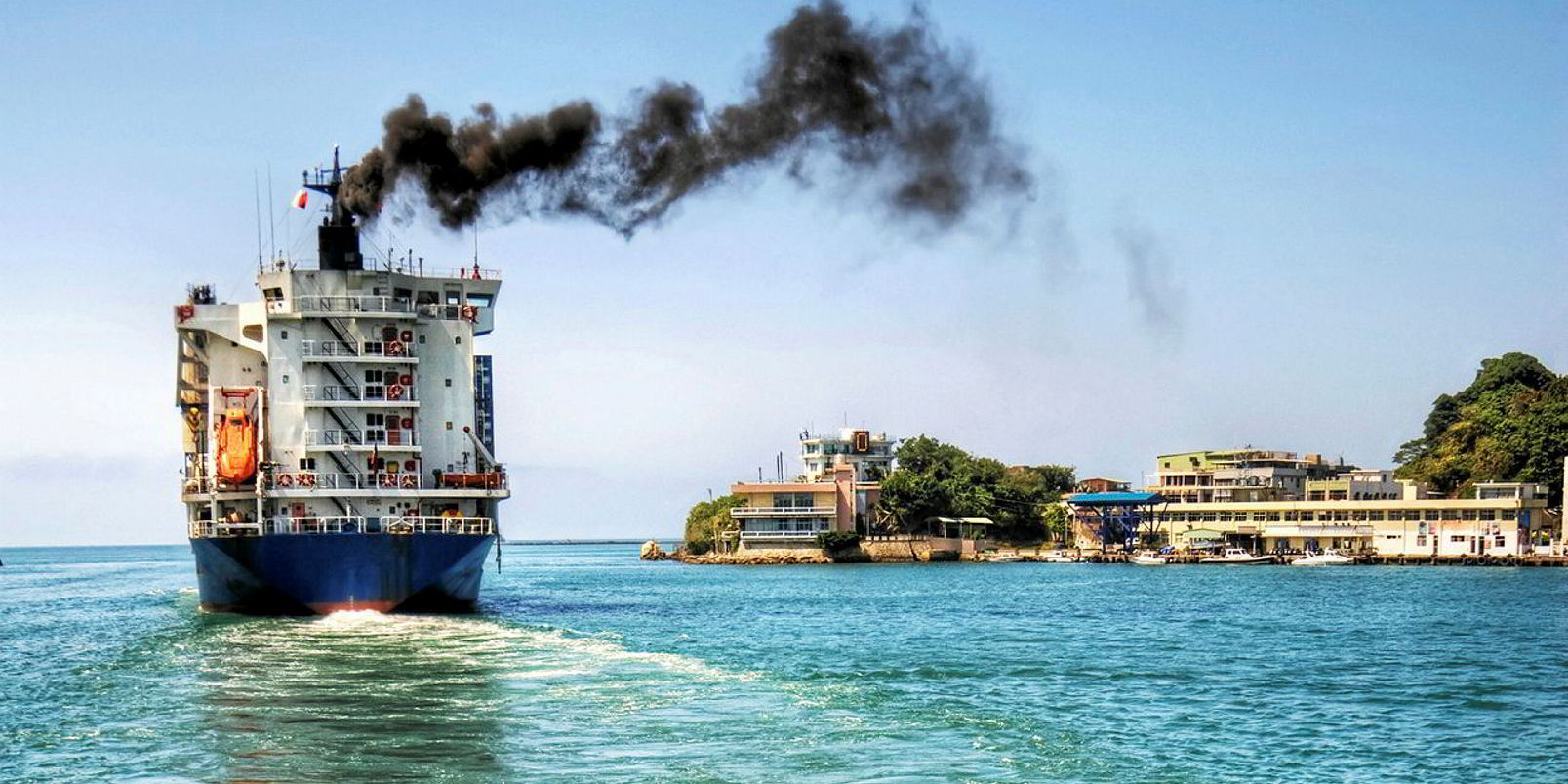
New global rules
Looming over the entire shipping market are the new global rules that come into force at the beginning of 2020, mandating cuts in the emissions of sulphur from ships' exhaust.
Wilhelmsen says the company anticipates it will be difficult to pass the expected higher cost of low-sulphur fuel on to customers, with it set to be up to $350 per tonne more expensive than today’s standard high-sulphur bunkers.
I think we need to look at many areas … So rather than taking an ‘all-in position’, we are effectively hedging ourselves in different positions
As a result, the group intends to use a range of hedges to manage the cost, including freight surcharges, slower ship speeds, financial derivatives and exhaust-gas scrubbers on 25 of its vessels.
“We know from the past that it is always a challenge to pass these costs on. I think we need to look at many areas — the financial derivatives side, the use of scrubbers, we need to look at it from a BAF [bunker adjustment factor] perspective.
“So rather than taking an ‘all-in position’, we are effectively hedging ourselves in different positions,” he says.
Both shipping and the oil industry are braced for the impact of the new IMO rules, which many expect will be one of the greatest upheavals seen in the marine-fuel market.
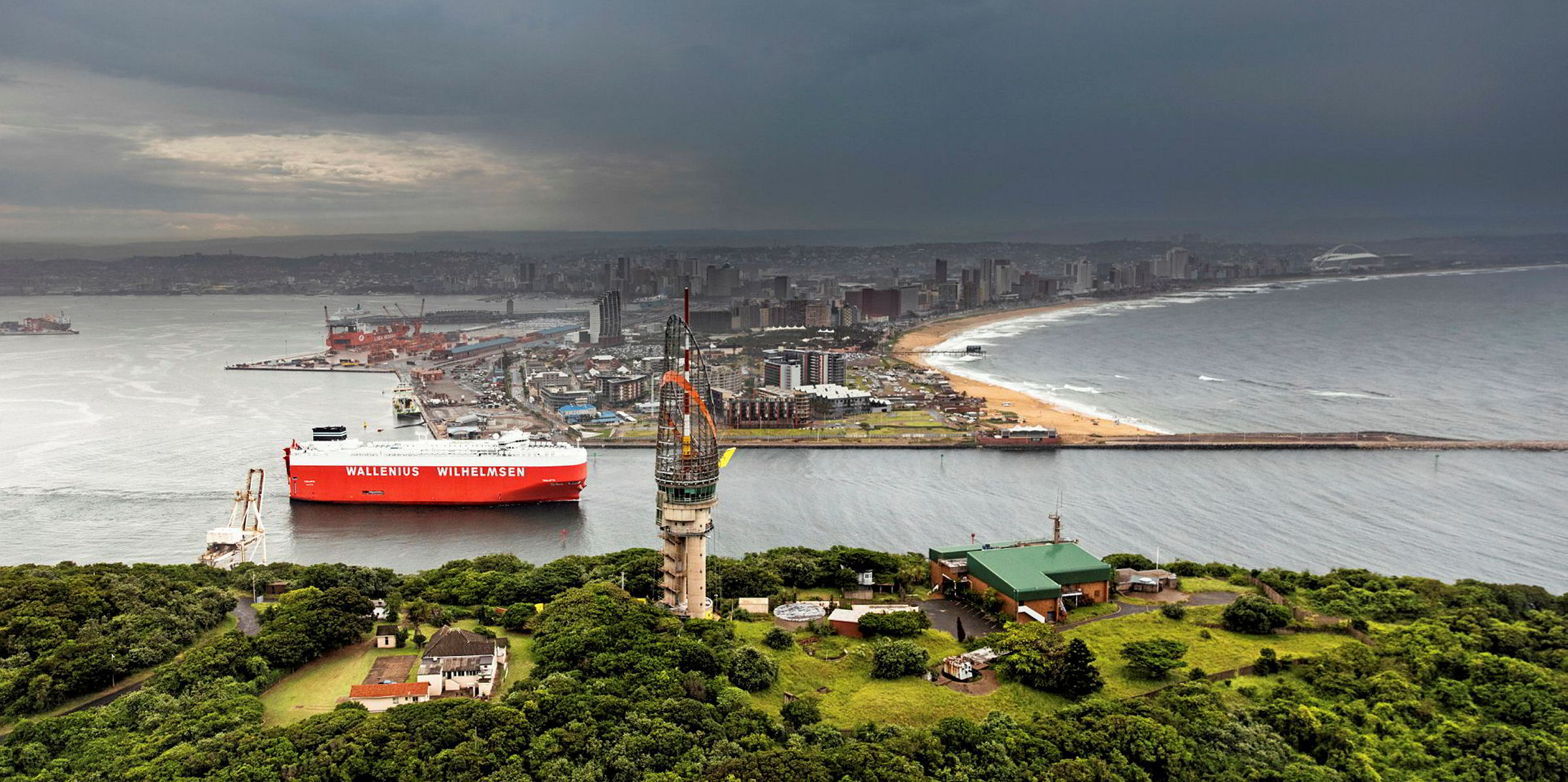
Many uncertainties
Wilhelmsen concedes there remains great uncertainty about the overall impact of the changes, which might occur in a range of areas.
“If you look at the macro-picture for the whole industry, it will be a very interesting phase leading up to 2020,” he says.
“It will be interesting because we don’t really know what the price spread will be. And the industry has a big challenge in passing this on to customers because it is really part of the cost of delivering the service.”
It may act as an incentive to save fuel by cutting ship speeds. “Another part that will be interesting to watch will be whether it will have an effect on speed," he says.
“If the costs are going up, then the best place to take it is to reduce the speed. And if you reduce the speed, that has a bearing on the overall capacity, and if you reduce overall capacity that might have an effect on freight rates.”
Wilhelmsen intends to buy derivatives to cover some of the fuel price spread risk, and it will use scrubbers on a limited number of ships to enable them to continue to burn high-sulphur fuel.
Wallenius Wilhelmsen already has five vessels operating with scrubbers and it recently announced plans to outfit 20 more.
Wilh Wilhelmsen recently reported Ebitda of $33m for the third quarter, up from zero the previous quarter when it took the costs for the attempted acquisition of Drew Marine Technical Solutions, a deal that was blocked by US regulators.
Wilhelmsen says the greatest challenge he faced was to lift the financial performance of all parts of the group.
“We need to improve our profitability in general across most parts of the business. If we were to look at a lot of the businesses we have, profitability is not what it should be,” he says.
